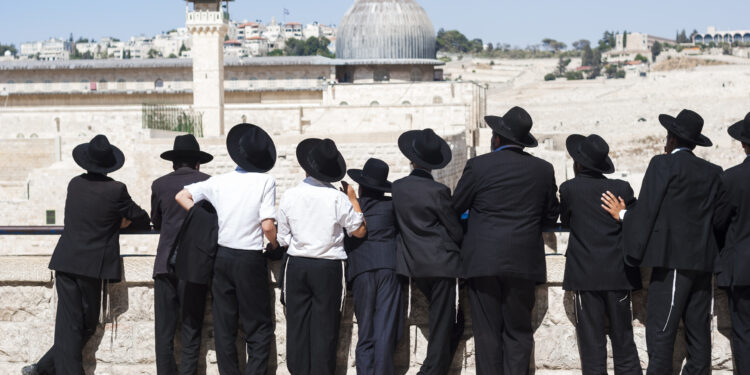Israel’s Supreme Court has ruled unanimously that ultra-Orthodox men must be drafted for compulsory military service, ending decades of exemptions. This landmark decision has sparked intense debate and could potentially destabilize Prime Minister Benjamin Netanyahu’s coalition government.
The ruling comes at a time when Israel is engaged in a prolonged conflict with Hamas in Gaza. Historically, ultra-Orthodox men have been exempt from the draft, which is mandatory for most Jewish citizens. This exemption has been a source of contention, particularly among the secular public, who view it as discriminatory. The Supreme Court’s decision mandates that ultra-Orthodox men are subject to the same conscription laws as other Israeli citizens, a move seen as promoting equality.
Ultra-Orthodox parties, key components of Netanyahu’s coalition, have vehemently opposed the ruling. They argue that forcing their constituents into military service would erode their religious lifestyle and traditions. These parties have hinted at leaving the coalition, which could lead to new elections, further complicating the political landscape amid the ongoing war.
The ultra-Orthodox community, which comprises about 12.9% of Israel’s population, views full-time religious study as their contribution to the state. They fear that military service will expose them to secular influences, threatening their way of life. Protests have erupted in Jerusalem, with thousands demonstrating against the draft.
Netanyahu’s government, already strained by the war effort, faces a significant challenge in implementing the court’s ruling while maintaining political stability. The government could attempt to pass new legislation to restore the exemptions, but such efforts would likely face fierce opposition and legal challenges.
The military, tasked with drafting 3,000 ultra-Orthodox men this year, has stated it is capable of accommodating these conscripts. Plans are being devised to increase ultra-Orthodox enlistment in the coming years. Some ultra-Orthodox leaders and organizations are advocating for compromise, suggesting special units or conditions that respect their religious practices.
This ruling is seen as a critical juncture in Israeli society, highlighting the tension between religious and secular communities. The outcome will shape Israel’s social and political fabric for years to come.









